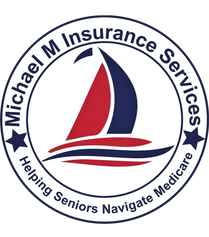Becoming eligible for Medicare is a major milestone—and for many, it brings with it a mixture of relief, confusion, and concern. Whether you’re
just starting your Medicare journey or supporting a loved one through it, it’s
important to understand the most common questions and worries people face as they approach age 65.
In this post, we’ll walk through what individuals are really thinking and feeling as they get ready to enroll in Medicare. Our goal is to provide clarity, calm, and confidence—so you can move forward with peace of mind.
Take your time. Ask questions. And when in doubt, reach out to someone you trust—Speak with a Licensed Medicare Advisor, a SHIP that can walk with you through the process.
You don’t have to do this alone.
In this post, we’ll walk through what individuals are really thinking and feeling as they get ready to enroll in Medicare. Our goal is to provide clarity, calm, and confidence—so you can move forward with peace of mind.
1. Understanding How Medicare Works
For many people, Medicare feels like a different language. The terms— Part A, B, C, and D —can be confusing, and it’s not always clear what each one does. Add letter designated Supplements and it can get really crazy.Common concerns include:
- What do the different parts of Medicare mean?
- Do I need all of them?
- How does Medicare Advantage differ from a Supplement Plan?
2. Choosing the Right Medicare Coverage
Many people fear making the wrong choice—and getting stuck with it. They wonder if they’ll lose access to their favorite doctor, or if one plan might leave them with surprise bills.Common Concerns Include
Should I choose Original Medicare with a Supplement or a Medicare Advantage plan?- What’s the difference between Medigap and Medicare Advantage?
- Will my doctor or hospital accept my Medicare plan?
3. Cost and Budgeting
Medicare isn’t free, and that surprises many people. There are premiums, deductibles, and out-of-pocket costs that can add up quickly.Common concerns include:
- How much will Medicare cost each month?
- What are the out-of-pocket costs for doctor visits, hospital stays, and prescriptions?
- Can I afford a Supplement Plan or Medicare Advantage plan?
4. Enrollment Timing and Avoiding Penalties
There are strict timelines for Medicare enrollment. Missing your window can mean penalties that last a lifetime.Common concerns include:
- When do I need to sign up?
- What if I’m still working?
- Will I get a penalty if I delay Part B or Part D?
- People are trying to do things the right way—they just need help understanding the rules and deadlines.
5. Prescription Drug Costs
Prescription medications are a daily need for many people, and the cost of those drugs is often a top concern.Common concerns include:
- How do I get Medicare drug coverage?
- Will my medications be covered?
- What happens if my prescriptions are too expensive?
6. Transitioning from Employer Coverage
If someone is still working at 65—or has a spouse who is—they’re often unsure how Medicare fits in.Common concerns include:
- Do I need to sign up for Medicare if I have employer coverage?
- Should I delay Part B?
- What happens to my spouse’s insurance if I switch to Medicare?
7. Fear of Making a Mistake
At the heart of many questions is a simple, honest fear: “What if I get this wrong?”Common concerns include:
- Will I choose the wrong plan and be stuck with it?
- Will I pay too much?
- What if I miss something important?
Final Thoughts: You’re Not Alone
If you’re feeling overwhelmed by Medicare, you’re in good company. These concerns are common—and they’re completely valid. The good news is that with the right guidance, you can make confident, well-informed decisions.Take your time. Ask questions. And when in doubt, reach out to someone you trust—Speak with a Licensed Medicare Advisor, a SHIP that can walk with you through the process.
You don’t have to do this alone.
If I chose the wrong plan am I stuck with it?
No, there are different enrollment periods that allow you to change to another plan.
I like my employer plan, is it a good idea to leave it?
Possibly, it depends upon your current coverage compared with
Medicare and a Medicare Health Plan.
I’m collecting Social Security, do I have to sign up for Medicare?
No, you will be automatically enrolled.
Mike Miligi- Owner
For over 10 years, Mike has been assisting Seniors and other Medicare-eligible individuals in understanding the ins and outs of Medicare and Medicare Health Insurance options, including Medicare Advantage Plans(Part C), Medicare Supplement Plans(Medigap), Prescription Drug Plans(PartD), and Dental and Vision programs.
Mike is Licensed in seven States and Certified with 11 Insurance Carriers. He has helped thousands of individuals decide on the best course of action for their particular Health Insurance needs. Because Mike is an Independent Medicare Health Insurance Broker, he works for the client, not the Insurance Carriers, and is able to provide his clients with accurate and unbiased Health Insurance options.
Mike recertifies with CMS(The Centers for Medicare and Medicaid Services) annually, regularly completes Continuing Education Courses required by individual State Insurance Departments, and keeps abreast of industry trends and standards to offer his clients the most up-to-date information.

